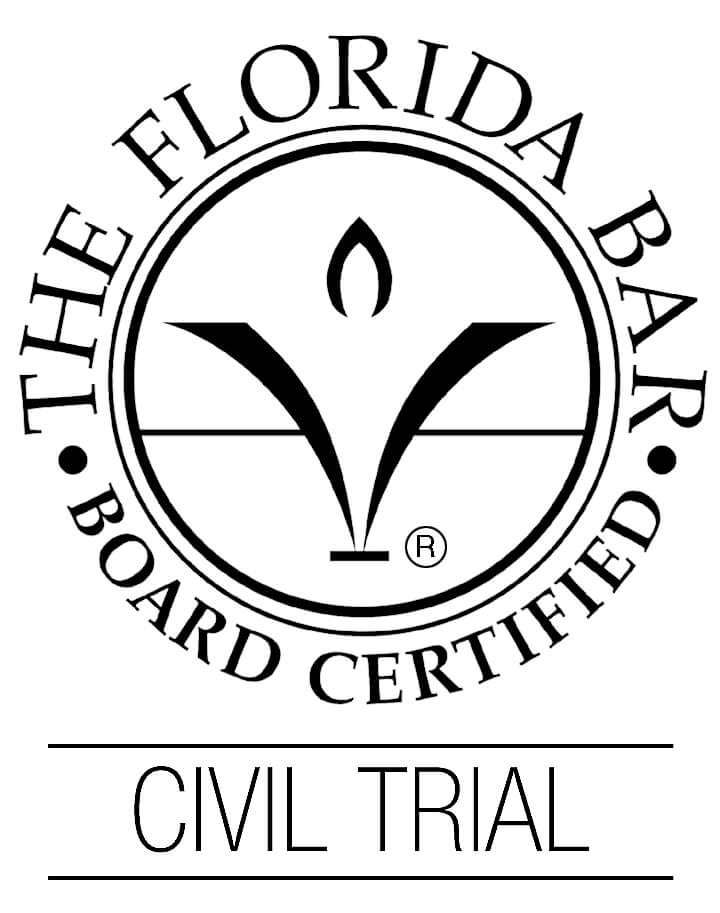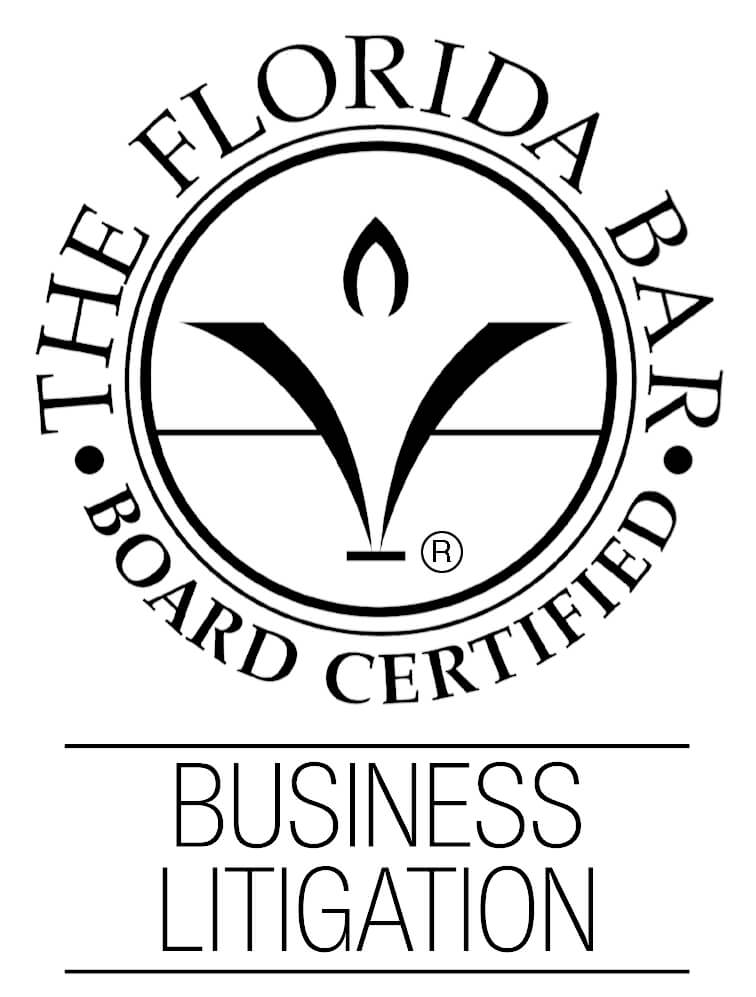Brain Injuries
A brain injury changes everything in an instant. Whether it’s from a car crash, a fall, or another serious accident, victims and their families are often left facing a world of questions. Not just about recovery, but about what the future will look like for everyone involved.
Some injuries are mild and heal with rest. Others cause long-term problems like memory loss, difficulty focusing, or changes in mood and personality. In the most serious cases, a brain injury can take away independence, limit mobility, or make returning to work impossible.
At The Nation Law Firm, we understand the weight these injuries place on both victims and their loved ones. Since 1997, we’ve helped Florida families navigate the medical and legal challenges that follow brain injuries, standing up for their rights and working to secure the support they need.
If you or someone you love has suffered a brain injury, get answers today for a free case evaluation.
Types of Traumatic Brain Injuries (TBI)
Not all brain injuries are the same. Some are mild and temporary, while others cause permanent changes. Understanding the different types can help you make sense of your diagnosis and what recovery may look like.
- Concussion: The most common form of brain injury, often caused by a blow to the head or sudden jolt. Symptoms may include headaches, dizziness, memory problems, or sensitivity to light and sound.
- Contusion: A bruise on the brain, usually from a direct impact. Larger contusions may require surgery if they put pressure on the brain.
- Diffuse axonal injury: Caused by strong shaking or rotation of the head, often seen in serious car accidents. This type of injury can stretch or tear brain cells, leading to severe and sometimes lasting impairment.
- Penetrating injury: When an object breaks through the skull and damages brain tissue, it often results in serious complications and long-term disability.
Doctors often classify these injuries with a mild, moderate, or severe scale, depending on how the brain is affected and how quickly symptoms appear.
If you’re already involved in the diagnosis process, you may hear big terms like “diffuse axonal injury” or “penetrating TBI.” These medical words can sound overwhelming, but what matters most is understanding what they mean for your life today and in the future. That clarity comes from medical professionals who explain your treatment options, and from legal advocates who can connect the diagnosis to your right to seek support and compensation.
Common Causes of Brain Injuries
Brain injuries can happen in serious accidents, but also in everyday moments. A fall in the grocery store, a sudden jolt in a car crash, or a workplace mishap with heavy equipment can all leave lasting effects, even in seemingly minor impacts.
Some of the most common causes include:
- Falls: Slips, trips, or falls are a leading cause of brain injuries, especially among older adults and young children.
- Motor vehicle accidents: Car, truck, and motorcycle crashes often involve sudden impacts that can jolt or strike the head.
- Sports injuries: Contact sports like football or soccer carry a high risk of concussions, particularly for younger athletes.
- Workplace incidents: Jobs that involve ladders, machinery, or construction zones put workers at risk.
- Violent assaults: Physical attacks, or blows to the head, can cause serious and sometimes permanent brain damage.
Understanding the cause of a brain injury is important, but it’s only part of the picture. What matters most is how the injury affects your daily life, from your health and work to your family. Getting medical attention and documenting the details early can make the path forward clearer, both for your recovery and for any legal steps you may take.
Symptoms of Brain Injuries
Brain injuries don’t always look the same, and symptoms may appear immediately or develop slowly over time. That unpredictability often makes them difficult for both victims to understand, and sometimes harder to diagnose properly.
Some of the most common symptoms include:
- Physical changes: Headaches, dizziness, nausea, blurred vision, or sensitivity to light and sound.
- Cognitive effects: Trouble concentrating, memory lapses, slowed thinking, or difficulty processing information.
- Emotional and behavioral shifts: Irritability, anxiety, depression, mood swings, or personality changes that weren’t present before.
- Sensory changes: Ringing in the ears, loss of taste or smell, or problems with balance and coordination.
These symptoms can affect every part of daily life, from work and school to personal relationships. If you or a loved one is noticing these changes after an accident, it’s important to take them seriously and seek medical help sooner than later.
Diagnosis and Treatment of Brain Injuries
Getting the right diagnosis after a brain injury is one of the most important steps in your recovery.
Symptoms can range from mild headaches to severe cognitive changes, so doctors often rely on a combination of exams and imaging tests to understand what’s happening. Common tools include:
- CT scans: Used early on to detect bleeding, swelling, or fractures.
- MRI scans: Provide a detailed look at brain tissue to identify damage that might not appear on a CT.
- Neurological exams: Assess reflexes, coordination, balance, and memory.
- Neuropsychological testing: Measures thinking, reasoning, and emotional functioning to understand the full impact of the injury.
Treatment for brain injuries can feel like a long road, especially when recovery takes months or even years. Staying consistent with care, from follow-up appointments to therapy, gives you the best chance to rebuild skills, regain independence, and plan for the future, while legal action covers the cost.
Hypoxic and Anoxic Brain Injuries
Not all brain injuries are caused by an impact. Some happen when the brain is deprived of oxygen, even for a short time. Doctors call thesehypoxic(caused by reduced oxygen) oranoxic(caused by the result of no oxygen) brain injuries.
These injuries can come from situations such as near-drowning, cardiac arrest, complications during surgery, or exposure to toxic environments. Symptoms can include:
- Confusion
- Memory loss
- Difficulty speaking
- Vision changes
- Loss of consciousness
In severe cases, victims may experience permanent disability or require lifelong care.
When an oxygen-related brain injury is linked to negligence, whether in a medical setting, workplace, or another environment, victims and families may have the right to seek compensation for medical bills, lost income, and future care needs. Understanding the medical language is the first step; knowing your legal options ensures you have the support to move forward.
Legal Rights of Brain Injury Victims
The focus is healing before anything else. But as medical bills pile up and work becomes difficult or impossible, many families realize they also need to understand their legal rights for financial support.
In Florida, victims of brain injuries may have the right to seek compensation if negligence played a role in their accident. That could mean a careless driver in a collision, an unsafe workplace, or even a defective product. Through these claims, families can cover medical treatment, lost wages, and the cost of future care, which is often substantial in brain injury cases.
At The Nation Law Firm, we’ve spent decades helping Florida families navigate these claims with compassion and strength, and we’re ready to help you, too. If you or your family are dealing with an injury, speak with our team today with a free case evaluation.
Challenges in Proving Brain Injury Cases
Even when the effects of a brain injury are obvious to the person living with them, proving the extent of the injury in a legal setting can be difficult. These cases are complex because the brain is complex, and insurance companies often use that complexity to dispute or minimize what victims are going through.
Some of the most common challenges include:
- Establishing causation: Insurers may argue that the brain injury wasn’t caused by the accident, meaning they aren’t liable for your compensation. This is especially common if the victim had any prior health issues.
- Measuring non-economic damages: Symptoms like memory loss, mood changes, or difficulty concentrating are real and life-altering, but harder to quantify than hospital bills.
- Addressing pre-existing conditions: Defendants often try to blame old injuries or medical conditions to reduce their responsibility.
- Time and evidence: Scans and medical records don’t always capture the full picture, and symptoms can take time to appear. In some cases, diagnosis doesn’t detect an injury until years down the line, making early documentation and testimony from specialists critical.
These obstacles can feel discouraging, but they don’t mean recovery or justice is out of reach. With the right medical experts, thorough documentation, and The Nation Law Firm, it’s possible to build a case that truly reflects the impact of the injury on your life.
Compensation for Brain Injury Claims
The costs of a brain injury go far beyond the hospital bill. Florida law allows victims and families to seek compensation for the losses that follow an injury, including:
- Medical expenses
- Lost wages
- Reduced earning capacity
- Pain and suffering
- Emotional distress
- Loss of consortium
- Future medical care
- Long-term rehabilitation costs
- In-home or assisted living care
Some of these losses are easier to calculate than others. Tangible expenses, like medical bills and lost wages, leave a paper trail. But the emotional, cognitive, and relational toll of a brain injury is harder to put into numbers.
Still, the impact of these conditions is just as real, and they deserve to be part of your recovery. If you’re unsure what support you’re entitled to, we’re here to listen to what you’re going through and guide you towards the best next step.
The Role of Expert Witnesses in Brain Injury Cases
One of the hardest parts of a brain injury is explaining what you’re going through. Headaches, memory problems, and mood changes are real, but not always easy to show on paper. This makes translating your condition to a claim challenging, which is why many brain injury cases involve “expert witnesses,” who leverage their professional backgrounds to give context to what you’re going through.
Doctors can explain how the injury happened and what it means for your health moving forward, while psychologists help show how memory, mood, or concentration has been affected. Financial experts calculate what the injury will cost over a lifetime in lost income or ongoing care. And together, they help build a clear picture of how the injury has impacted your life.
Finding these legal experts isn’t your responsibility. It’s ours, and we can bring in the right voices to make sure your story is understood.
Impact on Families and Caregivers
A brain injury doesn’t just affect the person who was hurt. Families carry the weight, too. From balancing doctor visits, helping with daily needs, and worrying about what the future will look like, caregivers may find themselves stretched thin.
These challenges are real, and no family should feel like they have to handle them without support. Counseling, therapy, and community resources can help families cope, but the costs of long-term care and lost income aren’t something you can ignore. Compensation through a legal claim helps ease those burdens, giving families room to focus on recovery instead of just getting by.
At The Nation Law Firm, we’ve stood with Florida families since 1997, guiding them through the hardest parts of recovery and making sure their voices are heard. If your family is facing the aftermath of a brain injury, we’re here to help you find answers, secure the resources you need, and protect your future.
Talk to our team today with a free case evaluation.
Frequently Asked Questions
What are the most common causes of traumatic brain injuries (TBI)?
Falls, motor vehicle accidents, sports injuries, workplace incidents, and violent assaults are among the most common causes of brain injuries. However, they can also result from situations where the brain doesn’t receive oxygen, like a near drowning or seizure.
What are the symptoms of a mild traumatic brain injury (concussion)?
Concussions can cause headaches, dizziness, confusion, memory problems, sensitivity to light or noise, and sometimes brief loss of consciousness. If you experience any of these symptoms, it’s important to see a doctor for a closer look.
How is a brain injury diagnosed, and what tests are used?
Doctors may use CT scans, MRIs, neurological exams, and cognitive testing to identify the injury and assess how it affects daily function.
What treatments are available for traumatic brain injuries?
Treatment ranges from rest and medication for mild cases to surgery, rehabilitation, and long-term therapy for more severe injuries.
Can I file a lawsuit if my brain injury was caused by someone else’s negligence?
Yes. If your injury resulted from negligence, like a careless driver, an unsafe workplace, or a defective product, you may be able to file a legal claim. If you’re unsure of whether you have a legal claim, our team can help you understand more about your options.
How can brain injuries impact a person’s ability to work and live independently?
Brain injuries can affect memory, mood, concentration, and physical coordination, sometimes making it difficult to return to work or manage daily tasks without support. If you’re injured, you may be eligible for compensation to cover time out of work, plus rehabilitation costs.
What is the difference between a hypoxic and anoxic brain injury?
A hypoxic brain injury happens when the brain receives too little oxygen, while an anoxic brain injury occurs when there is a complete lack of oxygen.
How do attorneys prove the severity of a brain injury in court?
Attorneys often rely on medical records, expert testimony from doctors and neuropsychologists, and evidence of how the injury has changed your daily life.
What types of compensation can I seek for a brain injury claim?
You may be able to recover medical expenses, lost income, future care costs, and damages for pain, suffering, and reduced quality of life.
How long do I have to file a lawsuit for a brain injury in Florida?
In most cases, you have two years from the date of the injury to file a claim, though certain circumstances may affect this deadline. If you’re eligible, it’s best to file your claim as soon as possible to stay within the timeline.






.svg)
